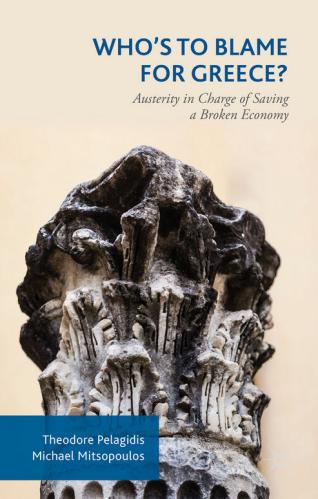The liberal leader of the center-right New Democracy party, Kyriakos Mitsotakis, was sworn in as Greece’s prime minister on July 8, after last Sunday’s snap elections in which he won 39.8 percent of the votes, while the ruling populist Syriza party secured a 31.5 percent share. The electoral system, which confers a 50-seat bonus to the party earning the most votes, ensures Mitsotakis has a clear majority of 158 parliament members in the 300-seat Hellenic parliament.
Mitsotakis promises a return to normality for the middle class after 4.5 years with the populist Syriza party in power. However, despite his clear majority in the parliament, radical and populist forces are alive and well in the legislature. A new far-right party, The Greek Solution, entered the parliament, crossing the 3 percent electoral law threshold with nine lawmakers. A nascent leftist party, MeRA25, created by former maverick finance minister Yani Varoufakis, also crossed the 3 percent threshold, winning 10 seats. One should not forget the tough, Soviet-style “Greek Communist party” that is always present in the house and that this time got 5.3 percent (15 Deputies). Finally, the former Socialists, a party with leanings similar to those held by Syriza, now called Movement of Change, took 8.1 percent of the votes (22 Deputies).
So, yes, liberals and conservatives (New Democracy) got around 40 percent and a clear majority in the parliament. This is a remarkable achievement, but with 60 percent of voters clearly against them, tough times may still be ahead, as currently there are no viable options for forging alliances with other parties. On another note, the surprisingly satisfactory electoral performance of Syriza has already led the new cabinet sworn in Tuesday afternoon to avoid, so far, either excessive festivities or complacency.
Mitsotakis has a window of opportunity to quickly pass several important pieces of legislation. Now is an opportune time during which pushback is likely to be minimal. Priority should be given to bills pertaining to urgently needed institutional reforms on security issues, privatizations, red tape, and the like. The immediate goal is to promote a much friendlier business environment since there is a broad social consensus supporting such a policy action. But the devil is always in the details.
Attracting foreign direct investment is essential, but fraught with complexity. For the past 10 years, Greece has hugely underinvested in its economy—the ratio of investments to GDP is just 11 percent, the worst score by far among EU members. Consequently, productivity has languished for years and wages are stuck at such low levels that it is impossible for new families to have kids and live a decent, normal life. As a result, economic growth was projected to be only 1.9 percent last year, and brain drain rose over the past 10 years. An exodus of skilled workers has exacerbated the problem of an aging population, which, in turn, is having unfortunate repercussions with respect to the social security system. Thus, the new administration needs to urgently tackle these interconnected problems, which constitute a Gordian knot and a drag on growth.
In the meantime, Euro-area finance ministers met on July 8 and signaled that, while they look forward to working with the new administration, Greece needs to stick to its post-bailout commitments. Prime Minister Mitsotakis reiterated during his campaign that he needs to pass all reform bills by the house. Then he plans to visit Brussels and possibly ask official creditors to modify the bailout rule agreed with the previous Syriza government. Mitsotakis’ government would request that the primary budget surplus be lowered for the period 2020-22 from 3.5 percent to 2 percent of GDP. Easing this fiscal straitjacket would make it feasible to lower sky-high taxes and reduce austerity in times when the primal need is to accelerate growth. It is, in fact, an exchange he is proposing to the European partners and creditors: “I offer fast reforms; you give me a lower fiscal primary surplus.”
Mitsotakis needs to:
- Push flagship projects (Hellinikon property development and Skouries mining complex in northern Greece) that have remained stuck in red tape for years, mainly because of local reactions based on environmental reasons.
- Push for a systemic solution to repair bank balance sheets as Non-Performing Exposure ratios among Greek banks remain sky-high at 45 percent of total loans.
- Deal with the Public Power Corporation, which is teetering on bankruptcy and incurring high economic costs that hurt competitiveness.
- Change the fiscal mix so it is more growth- and business-friendly. This could be done by sharply decreasing both taxes and public spending. Syriza handouts—money given by the government to voters before elections—have all but eliminated any possible fiscal space available in 2019 for the new administration. Even worse, the previous government has legislated similar handouts for 2020 and 2021 too.
Surely, tough times are ahead for the new administration but, on the other hand, Mitsotakis is a workaholic and a doer. Time will tell.










Commentary
Greek elections: The first defeat of populism in Europe?
July 10, 2019